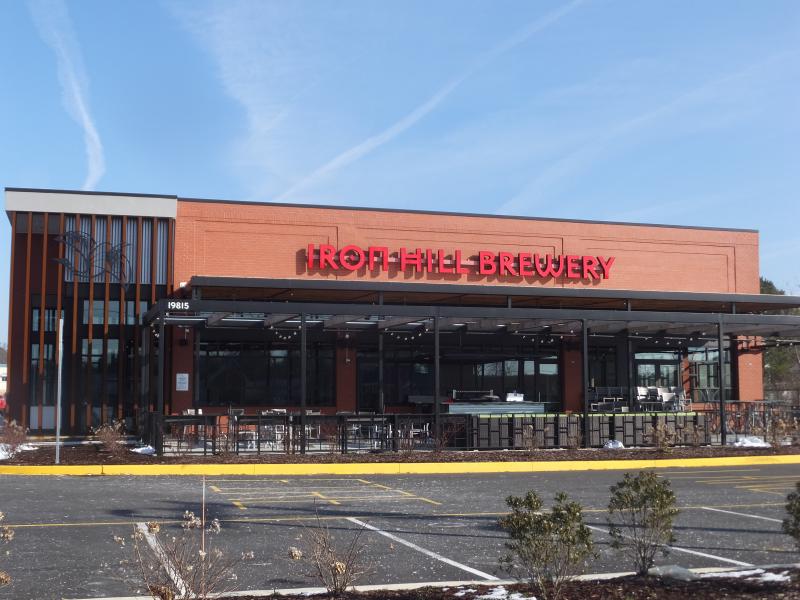Judge gives split decision in Iron Hill lawsuit
A Delaware Superior Court judge gave what could be called a split decision in a lawsuit between Iron Hill Brewery in Rehoboth Beach and its landlord.
Judge Mary Johnston ruled March 10 that Iron Hill was entitled to $115,000 in reimbursements from landlord Coastal Station Development for work the brewpub did on a concrete slab and the storefront that by contract should have been performed by Coastal Station. However, Johnston also ruled that Coastal Station is entitled to $94,000 in offsets for the building’s fit-outs.
However, the real dispute involved fees associated with cost overruns and design changes, which added up to just over $200,000.
The case originated from a breach-of-contract suit filed by Iron Hill in December 2018 over the interpretation of its 15-year lease with Coastal Station. As part of the lease agreement, Coastal Station agreed to provide Iron Hill with a shell building and Iron Hill would build out the interior space. Iron Hill was given a tenant improvement allowance of $1.6 million, to be paid in three installments.
During the construction process, issues arose; Iron Hill changed architects after the lease was signed, and the new architect proposed changes to the construction plans. Improvements included installing a concrete slab, storefront, walls, insulation, drywall, plumbing, a boiler room and a kitchen. The various improvements increased the costs of the project, which Iron Hill agreed to pay for with the understanding that the brewery would be reimbursed later.
The first installment of the improvement payments was for $414,000, to be paid 90 days after Iron Hill took over the property. The second payment, again for $414,000, was payable 120 days after Iron Hill took over. The final installment of $828,000 was to be paid after Iron Hill opened.
Iron Hill opened the brewery on May 24, 2018; on June 15, Iron Hill delivered an invoice for the third improvement payment, due on July 15. A new Sept. 9 deadline was agreed to, but Iron Hill claimed in court filings that it only received a partial payment of $549,000.
On Dec. 7, 2018, Iron Hill filed suit in New Castle County seeking the remainder of what it was owed on the third improvement payment, as well as reimbursement for $72,000 worth of work that was Coastal Station’s obligation under the lease but was performed by Iron Hill, and credit for $115,000 of work Iron Hill did on the concrete slab and storefront.
Coastal Station then filed a counterclaim, arguing it was entitled to offsets for money the developer spent on building permits, review fees, concept changes and design changes. Coastal Station did not contest that Iron Hill was entitled to the remainder of the $828,000 in improvement payments or reimbursement for the $72,000 worth of work Iron Hill did that Coastal Station was supposed to do. In turn, Iron Hill did not dispute that Coastal Station was entitled to offsets of $6,000 for building permits and $12,000 for plan review, among other fees.
In addition to the slab and storefront costs, the two sides disagreed on equivalent dwelling unit fees, or EDUs, which are assessed by counties and municipalities – Sussex County in this case – for the impact new construction will have on existing infrastructure. Coastal Station argued that the lease obligated it to pay EDU fees associated with the building while Iron Hill would pay EDU fees associated with the fit-out. Iron Hill argued that the lease required Coastal Station to pay all the EDU fees.
Johnston agreed with Coastal Station on this point and granted the landlord an offset of $94,000 in EDU fees related to Iron Hill’s fit-out.
The two sides also disagreed with Coastal Station’s general contractor applying a 15 percent markup on invoices for permit and plan review fees. Coastal Station argued it was entitled to such a markup because the company used its contractor’s resources in obtaining the permits and reviewing plans. Iron Hill countered by saying there was nothing in the lease agreement justifying a 15 percent markup. Johnston ruled with Iron Hill on this point, saying the lease contained no language that either side agreed to any markups.
Finally, there was disagreement on who was liable for the concept and design changes to the brewpub. Coastal Station sought an offset of $37,000 in architect design changes; Iron Hill agreed to a $34,000 offset. However, Coastal Station sought an additional $202,000 in setoffs related to costs associated with building changes, including costs for steel, exterior finishes, carpentry and delay damages.
Johnston ruled in favor of Iron Hill here, saying Coastal Station provided no documentation proving it was entitled to offsets for the building’s construction. While Johnston did not award either party a definitive victory in the case, she did award Iron Hill attorneys’ fees after she found Coastal Station did not produce supporting documents related to this particular claim.
Still, Charles Brown, attorney for Coastal Development, was happy with the judge’s decision.
“My client is grateful that the court agreed with our interpretation of the lease. We think that if Iron Hill had not attempted to stick us with more than $100,000 for its permitting fees in fitting out the interior of the restaurant, we would have been very willing to talk about the other issues and probably could have avoided litigation altogether,” he said.
Adam Balick, attorney for Iron Hill, said, “I don’t think there’s any more that needs to be added.”











































